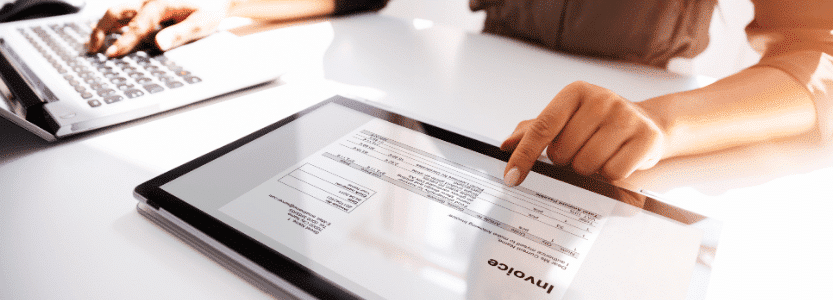Tax returns and you: a short guide
Updated 25th September 2023 | 7 min read Published 25th September 2023

"Tax return".
It's a phrase that rarely inspires positive feelings. Whether you're self-employed or run a company, its very utterance can conjure stress and confusion.
This makes sense. You didn't get into business to calculate tax or anticipate filing deadlines. Not unless you're an accountant or a bookkeeper.
So, with 31 January 2024 already on the horizon, let's take an express tour of tax returns. That way, you'll have a good idea of whether you'll need to register for Self Assessment or Corporation Tax. You'll also know what to expect if it's your first time reporting your income.
What is a tax return?
Put simply, a tax return is a form you, your accountant or a bookkeeper acting on your behalf fill in. It tells HM Revenue and Customs (HMRC) about your sources of income, taxable income, tax liability, tax payments and any tax deductions.
You can report as an individual (sole trader), as a company or as a partner in a business. And even though digital-only reporting is on its way, you can still choose to submit your tax return online or on paper.
In the process of filing a return, you'll get a calculation of how much tax you owe to HMRC. This will also take into account any tax paid. That means you'll also learn if you've given HMRC too much money – and if you're due a tax refund.
You may also make National Insurance Contributions (NICs) as part of this process.
The different types of return
As an individual, you fill out the main body of a Self Assessment tax return using form SA100. There are other supplementary pages, too. For example, employees and company directors will need form SA102, those making money from UK property will need SA105, and for Capital Gains Tax, there's SA108.
If you're filing a tax return as part of a company, you will fill in a CT600 Corporation Tax return. Normally, you will send this along with the company accounts for this period.
When are tax returns due?
Are you filing online as an individual? If so, you have to file your income tax return and pay any balance no later than the 31 January that follows the tax year in question.
Any later, and you face penalties.
If you are an individual filing a paper tax return, your deadline is 31 October.
The UK tax year runs from 6 April to the following 5 April. So, a digital tax return sent and paid by 31 January 2024 covers a tax year running from 6 April 2022 until 5 April 2023.
There's a wrinkle, however, and that’s Making Tax Digital (MTD). From April 2026, if you have an annual income over £50,000, you’ll fill in digital records every three months. That threshold will drop to £30,000 in 2027. MTD is a topic in its own right, but it's worth knowing about it now.
When is a Corporation Tax return due?
You should file your Corporation Tax return within 12 months of the accounting period. These accounting periods follow the calendar year. So, at the end of 2023, companies will send their returns for the year ending 31 December 2022.
The payment deadlines are different to those for individuals, however, so always check with HMRC.
Do I need to complete a tax return?
It's your responsibility to know if you should send a tax return to HMRC.
If you earn employment income under £100,000, the answer is "probably not".
In that situation, you'll often find you've paid tax on your income "at source" – the Pay As You Earn (PAYE) deductions you see on your payslip. As long as you've paid all the tax you owe, you will not have to complete a Self Assessment tax return.
If you started getting a state pension in 2016 and you owe tax, one of two things will happen. Either your pension provider will deduct the money, or HMRC will write to you.
The main reasons you might need to complete a tax return
If you think you have paid the wrong amount of tax, you might have to file a return. However, this is something you can sometimes avoid by contacting HMRC.
However, if you run a business as a "sole trader" (self-employed) earning over £1,000, you will need to file a return.
Meanwhile, limited companies always have to file a Corporation Tax return, even if they have made a loss.
Individuals, thresholds and income tax
There can be other reasons you need to fill out a Self Assessment tax return. These can include any untaxed income earned from a second job, property, dividends, savings and foreign sources. You will also have to report partially taxed pension lump sums and income greater than £100,000.
Furthermore, the High Income Child Benefit Charge (HICBC) may cause you to file a return. If you or your partner earn more than £50,000 and receive Child Benefit, this is something you must look into.
Do you think you need to fill out a tax return for the last year?
If you meet the criteria for Self Assessment, register online or call HMRC and tell them by 5 October before its due. Make sure you have your National Insurance number to hand, as you will need it.
Remember, your tax is always your responsibility. So, if you’ve searched for answers and are still in doubt, call a bookkeeper or an accountant for some advice. HMRC is also there to help.
We have an article that explains when it might be a good idea to hire an expert.
If you have formed a company, you'll need to register for Corporation Tax within three months of doing business. Check what “doing business” means via this link.
How to do a tax return
So, let's imagine you do need to file a tax return. Time to take a deep breath.
But there’s good news. Whether it’s a Self Assessment or a Corporation Tax return, there are a lot of similarities, many of which we will cover here.
In both situations, you'll have registered with HMRC.
And, of course, you're doing your tax return early, so if there are any issues, you can get help.
Getting started
The first thing you’ll need is a letter HMRC will have sent to you with your unique taxpayer reference number (UTR). HMRC also send separate paperwork with a Government Gateway ID and password, which are essential to completing an online tax return.
Check you have everything (and that your login works) in advance; there are few things more stressful than scrambling for details when you need to get your return done.
Then, gather all your records, accounts and receipts and see that everything is in order. If that was a difficult task, vow to keep them well organised for the next tax year. You need them, but so might HMRC if they are double-checking your return.
Filling out your tax return form
The Self Assessment and Corporation Tax forms are designed to take you through everything, step by step.
But things can soon start to feel complicated. Check HMRC's guidelines – online, there's usually a help button next to each section to assist you with what’s required. A warning: the explanations provided are not always crystal clear. If in doubt, do research and contact the HMRC helpline.
As you fill out the form, ensure you properly claim any tax relief and allowances. The tax return process isn't just about paying HMRC; it's also about fairly accounting for your expenses. HMRC's online guidance is very helpful here.
Remember, you have to have your accounts ready to send with your return if you are filing for Corporation Tax.
Paying your tax bill
When you hit “submit your return”, a calculation will appear, and it's time to pay the tax that you owe. For Self Assessment, the balance will include Class 2 National Insurance (based on a weekly flat rate) and potentially Class 4 National Insurance (a percentage of profits based on different thresholds).
You might also have to make a payment on account. This is an advance on the following year for anyone whose bill is more than £1,000, and it is designed to stop you falling into arrears. The first payment is due on 31 January. A second will be due on 31 July.
When you pay your Self Assessment tax bill or your Corporation Tax, remember: the money needs to have cleared by the deadline. So, think in advance about the method you will use, such as a credit card or bank transfer. If there are issues, call HMRC. It can put your mind at rest and stop you from getting a penalty.
Make life easier
If you have a business and want to keep on top of taxes and accounts, take a look at our solutions. These include IRIS Elements, our cloud-powered platform that scales with your needs, helps you to file tax returns and track your finances.








